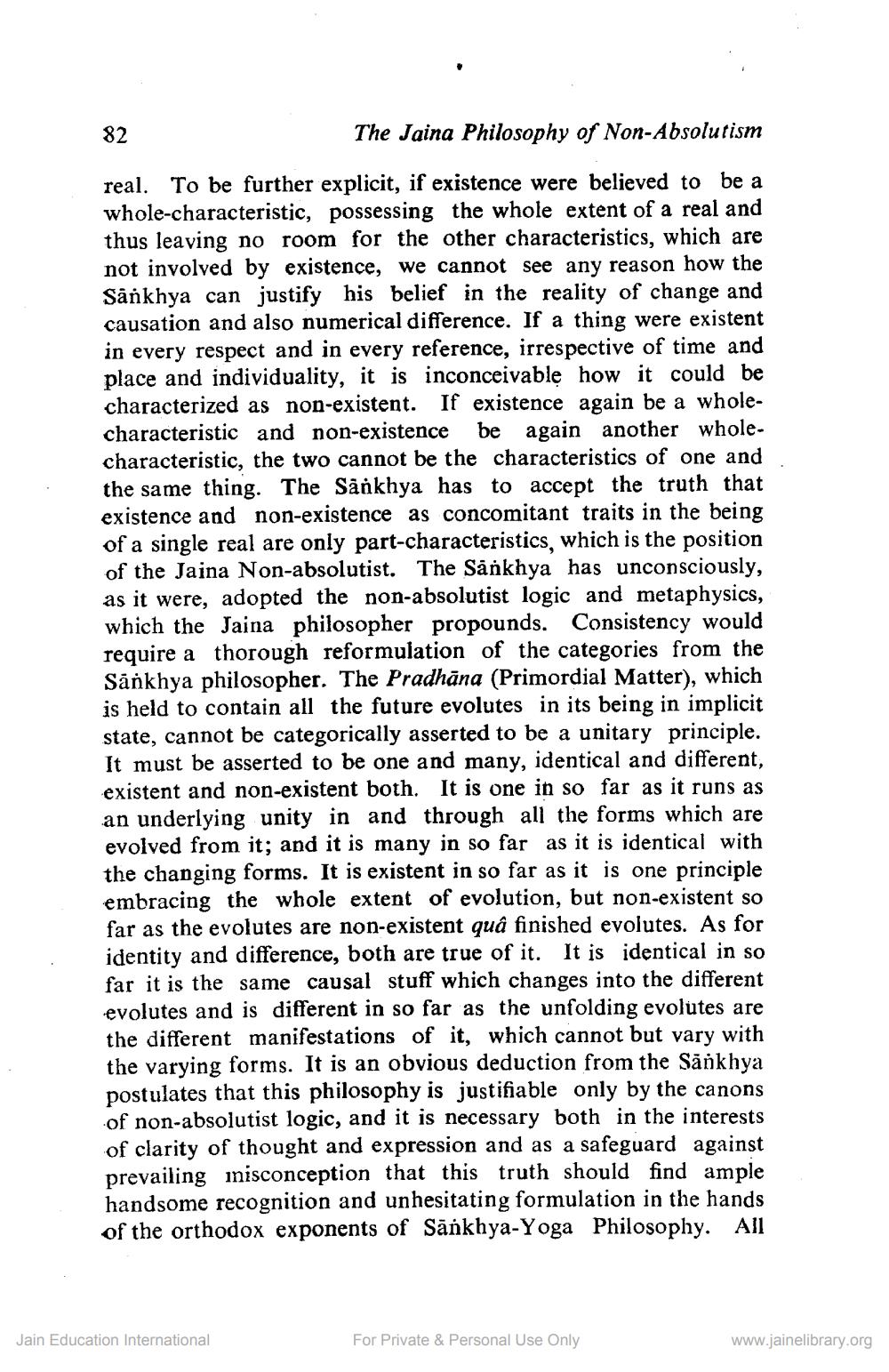________________
82
The Jaina Philosophy of Non-Absolutism
real. To be further explicit, if existence were believed to be a whole-characteristic, possessing the whole extent of a real and thus leaving no room for the other characteristics, which are not involved by existence, we cannot see any reason how the Sankhya can justify his belief in the reality of change and causation and also numerical difference. If a thing were existent in every respect and in every reference, irrespective of time and place and individuality, it is inconceivable how it could be characterized as non-existent. If existence again be a wholecharacteristic and non-existence be again another wholecharacteristic, the two cannot be the characteristics of one and the same thing. The Sankhya has to accept the truth that existence and non-existence as concomitant traits in the being of a single real are only part-characteristics, which is the position of the Jaina Non-absolutist. The Sankhya has unconsciously, as it were, adopted the non-absolutist logic and metaphysics, which the Jaina philosopher propounds. Consistency would require a thorough reformulation of the categories from the Sankhya philosopher. The Pradhana (Primordial Matter), which is held to contain all the future evolutes in its being in implicit state, cannot be categorically asserted to be a unitary principle. It must be asserted to be one and many, identical and different, existent and non-existent both. It is one in so far as it runs as an underlying unity in and through all the forms which are evolved from it; and it is many in so far as it is identical with the changing forms. It is existent in so far as it is one principle embracing the whole extent of evolution, but non-existent so far as the evolutes are non-existent quâ finished evolutes. As for identity and difference, both are true of it. It is identical in so far it is the same causal stuff which changes into the different evolutes and is different in so far as the unfolding evolutes are the different manifestations of it, which cannot but vary with the varying forms. It is an obvious deduction from the Sänkhya postulates that this philosophy is justifiable only by the canons of non-absolutist logic, and it is necessary both in the interests of clarity of thought and expression and as a safeguard against prevailing misconception that this truth should find ample handsome recognition and unhesitating formulation in the hands of the orthodox exponents of Sānkhya-Yoga Philosophy. All
Jain Education International
For Private & Personal Use Only
www.jainelibrary.org




